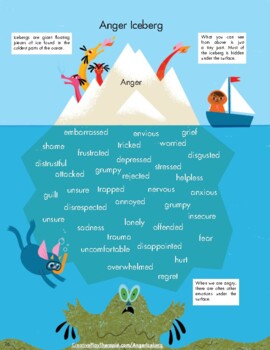

Human beings who don’t feel safe, don’t get out of their comfort zone. But really, they are usually a sign of anxiety and overload. Adversity to change & inflexibility of behaviour: We are taught these are just “Autistic things”. Forcing them to disrespect their own needs isn’t the answer.Ģ. Children, just like everybody else, refuse to do things they find harmful. Usually, the reason is trauma, anxiety, bullying, exclusion, unrecognised health conditions, or generally non-compatible social or sensory environments. Children do not refuse to do things for no reason. School refusal, demand avoidance, defiance: Kids do well if they can. Some common “Autistic behaviours” you will hear about and what they really mean:ġ. Our job is to fix the cause of the behaviour, not the child. If they show challenging behaviours, it’s because they are being challenged by their environment. But the thing is, kids do well if they can. This week’s theme on AUsome socials: BEHAVIOURĪs parents, we are taught that we have to manage our kids’ ‘challenging behaviours’.

#NeurodiversityMatters #InclusiveEducation #SignThePetition #WalesForAllLearners Join us today and be a part of the movement for inclusive education! 🌈 Together, let's create a future where every student's unique abilities are recognized, celebrated, and nurtured. To add your name to the petition and SHARE it with your friends, family, and fellow advocates. Together, we can shape an educational landscape that empowers and celebrates neurodiverse students! 📢 Help us make a difference! Sign the petition today to ensure that no child is left behind in Wales.

#Add adhd iceberg full
By championing neurodiversity campaigns in schools, we can break down barriers, reduce stigma, and create environments where all students can reach their full potential.

With the right strategies and accommodations, these students can thrive academically and emotionally.ģ️⃣ Foster inclusion: We believe that every child deserves to feel valued and included. 📝 Did you know that every child deserves an education that celebrates their unique strengths and supports their diverse learning styles? By signing our petition, you can help make this a reality in schools across Wales.ġ️⃣ Promote awareness: By implementing neurodiversity training for educators, we can foster understanding and create inclusive classrooms that embrace the diverse needs of students with conditions such as autism, ADHD, dyslexia, and more.Ģ️⃣ Provide support: We urge the government to allocate resources for specialized training programs, enabling teachers to recognize and support neurodivergent students effectively. Together, we can make a profound impact on the lives of countless young minds! 🧠✨ Join us in advocating for neurodiversity campaign and training in schools. 🌟 It's time to stand up for neurodiversity and create inclusive learning environments for all students. 📢 Urgent Call for Signatures! JUST 12 DAYS LEFT!!📢 It may help them understand attention deficits better. You may want to show this iceberg to your parents or teachers. Most adults don't understand just how complex ADD and ADHD are, and how difficult it is for you to cope with it. As is true of icebergs, often the most challenging aspects of ADD and ADHD lurk beneath the surface.įor example, take a minute and look at all the characteristics listed below the surface.ĭo you have problems falling asleep or waking up, arriving somewhere on time, memorizing multiplication tables, repeating misbehavior, or getting started on your schoolwork? All these things often go along with your attention deficit. When you think of attention deficit disorders, visualize this iceberg with only one-eighth of its mass visible above the water line. Remember, two-thirds of you have at least one other diagnosable condition that often has a significant impact on your schoolwork. School is often incredibly challenging because of your inattention, executive function deficits such as being disorganized, losing track of time and being late, remembering and organizing your thoughts to write an essay, and memorizing information. Yet for so many teenagers, an attention deficit is much more complex than just these obvious behaviors. Typically, teachers and parents see the obvious tip first: the problems, such as not doing your homework, doing things impulsively, losing things, talking back, and arguing. If you find it hard to read go to Chris A. Attention deficit disorder may be compared to an iceberg: most of the problems are hidden beneath the surface and only the tip of the problem is visible!


 0 kommentar(er)
0 kommentar(er)
